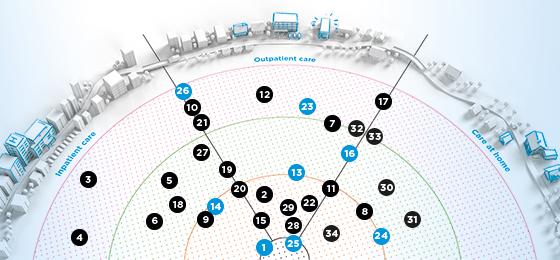Four recently completed projects present their main research findings.

The latest results from four NRP 74 research projects are available. In the course of the year, more projects will be completed and their results presented.
The projects funded by NRP 74 started at two points in time (2017 and 2019) and will last between two and five years. They are also expected to finish at different times.
List of completed projects:
Project 1: Health Care of migrant women
Patient experiences help improve health care for migrant women
The study by Prof. Dr. Dr. Thomas Abel and his team identified social, economic and cultural factors that shape migration-related inequalities in health care for women with chronic diseases in Switzerland. Based on patients' experiences and including them in all phases of the project, specific recommendations were developed to improve access to health care.
More information on the study:
Project 24: Data on the quality of home care
Spitex uses its data to optimise client satisfaction and quality of care
The study of Prof. Dr. Julia Dratva and her team aimed at deepening the knowledge about the supply, demand and quality of home care in Switzerland. The project analysed the potential of the still little-used data-base of the Swiss Home Care Association (Spitex) and developed it further.
More information on the study:
Project 25: Long-term care
Older adults express their choices to guide the long-term care policy
The study of Prof. Dr. Santos-Eggimann and her team found that older adults' views on long-term care are adapted to the needs for assistance and possible support from a spouse. Men more often than women favour care at home without professional intervention. There is a growing interest in sheltered housing.
More information on the study:
Project 26: Differences in medical services
Impact of scientific evidence on regional differences in medical services provision is smaller than expected
Chronic diseases are treated differently depending on geographic region. The study by Prof. Dr. Schwenkglenks and his team found no association between the strength of evidence of clinical guidelines and geographic variation. It also found that guidelines that advise the use of a service tend to be followed more strongly than those discouraging it.
More information on the study:
The results of further research projects are expected in the course of the year.
